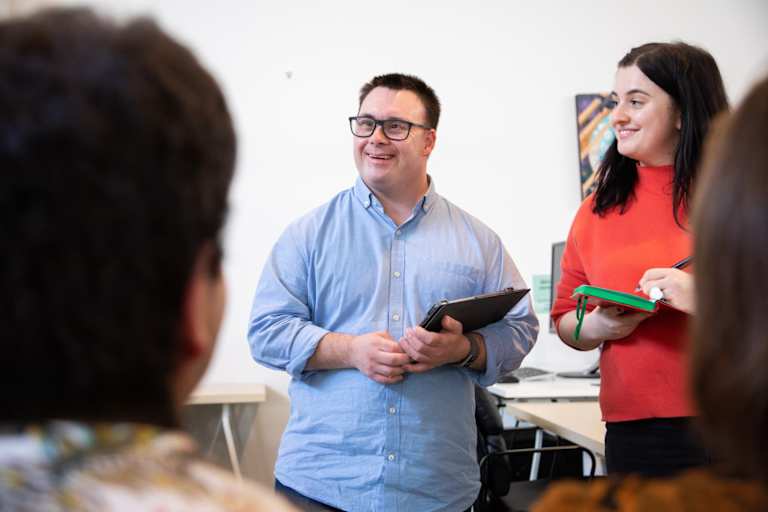How to Become a Behavioral Counselor: Education, Licensure, and Salary Guide
- To become a behavioral counselor, you need a master’s degree in counseling or a related field, supervised clinical experience hours, and state licensure.
- Most states require around 3,000 hours of postgraduate clinical experience and a passing score on the NCE or NCMHCE exam.
- Behavioral counselors earn a median annual salary of nearly $60,000.
A behavioral counselor is a licensed professional who applies specialized training to help clients address mental health challenges. While licensing requirements vary by state, they share some common elements. Discover how to become a behavioral counselor in this guide.
Steps to Become a Behavioral Counselor
Behavioral counselors require both hard and soft skills. Key soft skills include:
- Empathy
- Communication
- Active listening
- Patience
You can develop the necessary hard skills by following this path:
- Step 1: Earn a Bachelor’s Degree
Start by earning a bachelor’s degree in a relevant field. Behavioral psychology and counseling psychology are popular options, but you can also major in general psychology, human services, or social work.
At the bachelor’s level, focus on building research skills and knowledge in human behavior, cultural sensitivity, and evidence-based approaches.
- Step 2: Earn a Master’s Degree in Counseling
Most professional mental health counselors need a master’s degree to qualify for licensure. At the master’s level, you can pursue a general or specialized counseling degree. Specialization areas include addiction counseling, behavioral health, and marriage and family therapy.
Some schools also offer online counseling programs, which offer enhanced flexibility, convenience, and the potential for cost savings.
- Step 3: Complete Postgraduate Supervised Experience
After earning your degree, you’ll need to complete postgraduate supervised experience under the oversight of a licensed professional. Exact requirements vary by state, but they typically total about 3,000 hours or two years of full-time commitment.
As specified by your state’s licensing board, a certain number of those hours must include direct client contact.
- Step 4: Pass a National Counseling Examination
As a final qualification step, you’ll need to pass a standardized counseling examination. Most states use one of two national exams: the National Counselor Examination or the National Clinical Mental Health Counseling Examination.
- Step 5: Obtain State Counseling Licensure
To formalize your license, you must apply to your state’s licensing board. This step may require credential verifications and/or criminal background checks. Upon approval, you will receive an official title such as licensed professional counselor, licensed mental health counselor, or licensed professional clinical counselor.
How Long Will it Take to Become a Behavioral Counselor?
Your journey toward counseling licensure will likely take 6-8 years, including earning a graduate degree and completing post-graduate experience. Since you need a doctorate to become a psychologist. It usually takes less time to become a behavioral counselor than it does to become a behavioral psychologist.
| Job | Time to Become |
|---|---|
| Behavioral Health Technician | Up to one year |
| Board Certified Behavior Analyst | 6-8 years |
| Behavioral Counselor | 6-8 years |
| Behavioral Psychologist | 8-12 years |
How to Continue Your Education as a Behavioral Counselor
While a master’s degree can qualify you for counseling licensure, you have the option to upgrade your educational credentials. This can deliver career-boosting benefits, as described below:
Doctoral Degree in Behavioral Psychology
If you choose to study at the doctoral level, you can earn a degree in behavioral psychology. Doctoral programs in counseling psychology are also relevant to licensed career paths in mental health.
Earning a doctorate typically requires more time (4-7 years), but it opens additional career pathways. With an eligible doctoral degree, you can become a licensed behavioral psychologist or counseling psychologist. These advanced careers offer many benefits, including becoming a licensed psychologist and a higher earning potential.
How Much Does a Behavioral Counselor Make?
Behavioral counselor salaries vary depending on location, experience level, and employment setting.
The median annual salary for substance use, behavioral disorder, and mental health counselors is $59,190, as reported by the U.S. Bureau of Labor Statistics (BLS). Salaries can range from $39,000 to over $98,000.
FAQs About Becoming a Behavioral Counselor
Behavioral counselors evaluate and assess their clients’ mental health, design and lead treatment plans, and monitor treatment effectiveness. They may also participate in community outreach programs and coordinate client care with other mental health and human service agencies.


